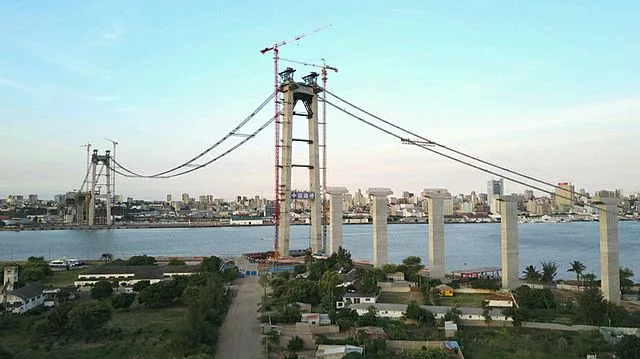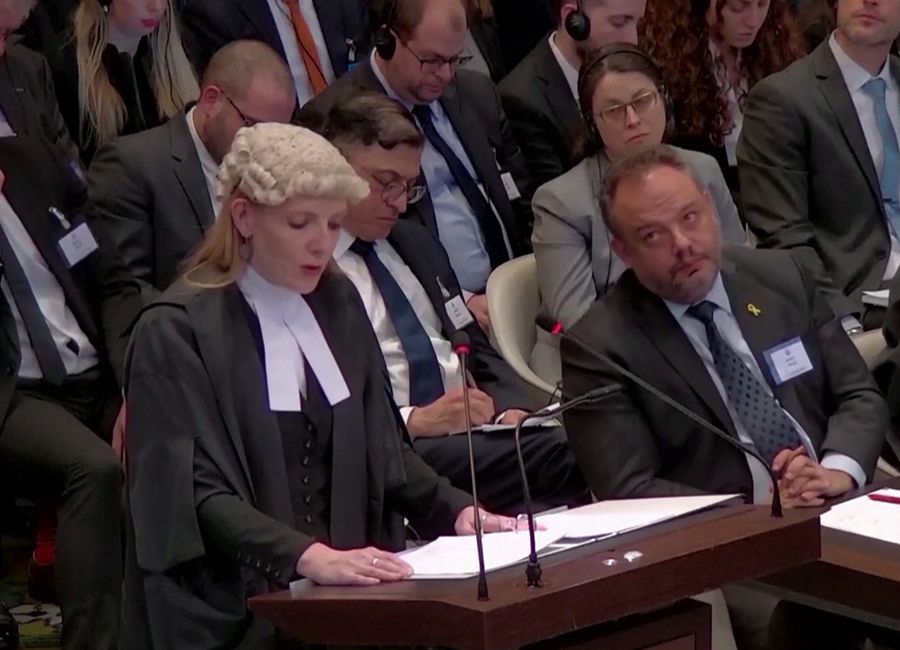
ByAlexander Still
20th January 2024
The future belongs to Africa. Its developing economies are increasingly diverse. Its working population is skyrocketing, whilst its natural resources are abundant (especially when it comes to clean energy – think lithium). Soon, its strategic geographical position could see it become the epicentral thread in a web of global trade networks bridging East and West.
The global economy, meanwhile, needs reignition. Manifold setbacks over the past decade have depressed growth. As the world recovers and seeks to revitalise the flame, Africa – and the promise of its people – will play a central part in lighting it.
Everybody knows this. Especially China.
Yet the emphasis remains on development. Only half its infrastructure needs are being met, with the African Development Bank estimating the infrastructure need of Sub-Saharan Africa to exceed US$93 billion annually over the next ten years.
Consequently, African nations are proactive in seeking foreign aid to help sustain development and improve regional integration by building dams, power-plants, and railways – something China’s media discourse emphasises. As a result, our focus must remain on African agency. For it is African nations that are themselves actively investing in their future.
Yet it is China which, for a long time, has signed the cheques.
Since the launch of its ‘Going Out’ strategy in 1999, Beijing has invested increasingly in Africa, with direct investment growing more than six-fold to around US$80 billion: in 2019, it invested more than double that of the U.S. To this extent, China has so far monopolised the market for foreign investment. For years, Beijing has urged state-owned enterprises (SOEs) to penetrate local markets, taking advantage of a dynamic new phase of world trade and the hunger of developing regions for investments in infrastructure. Many are uniquely-equipped to meet Africa’s needs, having spent the past two decades gaining experience in developing infrastructure domestically.
In this sense, China’s involvement represents, in the words of professors Giles Mohan and May Tan-Mullins, a “global realignment of Southern interests”, allowing Beijing to frame its ambitions – whatever they may be – within at least a rhetoric of global leadership and cooperation.
Its Belt and Road Initiative (BRI), evolving to become the overarching framework through which China engages with the continent, has seen billions pumped into developing projects such as Ethiopia’s Eastern Industrial Zone (EIZ) – described by the country’s former Prime Minister, Meles Zenawi, as an example of China’s “irreplaceable role” in the Ethiopian economy. The zone is 100% owned and managed by China’s Qiyuan Group.
Reports of corruption are widespread. Working conditions are under increasing scrutiny. Similar projects have been investigated for using special economic zones to side-step U.S. import tariffs. Nevertheless, so long as Chinese investment appears lucrative (and the EIZ has created more than 20,000 new jobs), China will continue to attract nations such as Ethiopia.
The consequence is that Afro-Chinese relations run the risk of becoming dangerously asymmetrical.
The Cameroonian anthropologist Francis Nyamnjoh used the terms “eating and being eaten” to describe Africa’s vulnerability. Desperate to develop, nations such as Zimbabwe face being ensnared by the “emerging tentacles of…global extractive capitalism”. Zimbabwe’s Congress of Trade has already complained of local industries being undermined, with China’s growing presence leading to “dependency syndrome” in various sectors. Dependency theorists in the West are growing concerned.
So too are its leaders.
Many in the West see China’s investment as a ‘soft’ means of establishing itself globally. Some even suggest that through projects such as the EIZ, Ethiopia (and elsewhere) may become Chinese “colonies”. This is certainly hyperbole. From Ethiopia’s perspective, claims of “Chinese neo-colonialism” come from “fear in the West of growing [Chinese] influence in Africa”. Often, investment stems from socioeconomic weaknesses back home, with many Chinese workers seeking greater financial opportunities building roads etc.
Regardless, it is important that we recast geopolitical issues in geoeconomic terms, and recognise that those countries investing today in such things as renewable energy-sources may become the dominant geopolitical players tomorrow.
A good example is lithium. By 2025, Africa’s share of global lithium production is expected to leap from 0.1% to 10.6%. Lithium is crucial to a carbon-free future. It powers everything from electric car batteries to grid-scale energy storage.
And China has a strangle-hold on the supply-chain.
Africa’s largest lithium projects are being bought by Chinese SOEs. In April 2022, Arcadia, located in Zimbabwe and one of the world’s biggest lithium projects, was sold to Chinese investors for an 87% share. Benchmark Mineral Intelligence predicts that soon, 90% of Africa’s lithium supply will come from mines owned or partly-owned by Chinese firms. This includes an illicit trade involving tax-avoidance, not to mention allegations of human-rights abuse. For China, however, the speed with which it is able to strike deals seems to be what matters.
The West, by comparison, is slow, unsurprising given the political risks of investing in potentially inhumane projects, in addition to public discourse surrounding mining. Yet whilst the West talks, China digs. This, compounded by U.S. policies which prioritise free-trade subsidies, threatens to see China’s grip over global supply-chains only grow tighter: Washington currently has no such free-trade agreements with Sub-Saharan Africa.
Many have condemned what John Bolton, former U.S. National Security Advisor, called “the strategic use of debt to hold states in Africa captive to Beijing’s wishes and demands…with the ultimate goal of advancing Chinese global dominance.” In Kenya (which owes US$6.83 billion in China loans), debt distress is a genuine concern.
Yet if China can be accused of laying ‘debt-traps’, so too could the West: interest rates on loans from private lenders in the West are almost double those on Chinese loans. Likewise, whilst the same cannot be said for BRI projects in places such as Sri Lanka, China shows no inclination of seizing assets off the back of defaults in Africa. Some at the Africa Policy Institute in Nairobi even speak of “silencing the narrative” on debt-traps being “peddled by the West.”
In truth, those such as President Ruto blame the entire global financial system for failing to respond to the needs of emerging economies.
The fact remains that China’s way of doing things has, in the eyes of many Africans, worked, with many viewing BRI projects in a positive light. How else are we to explain the enthusiasm of everyday Kenyans such as Ms Echesa, who in referring to Kenya’s Standard Gauge Railway advocated “[further] sacrifice to pay the debt and get more for such [BRI] projects”.
For many African nations, Chinese loans appear more conducive to longer-term development. Moreover, unlike the IMF’s, they aren’t conditional on reform – a selling-point Xi Jinping emphasises. “We have a high degree of agency,” Ethiopia’s deputy economic commissioner has been quoted as saying, “yet Western countries try and advise us about what our…law should be.”
Rapid investment in infrastructure can also help bolster the legitimacy of ruling regimes, and it is little surprise that the majority of support comes from ‘upstairs’ – that is, political élites.
The ‘downstairs’ view is often very different.
Nevertheless, for African governments desperate to develop, China represents a viable way forward.
The question, therefore, is how the West makes sense of all this – and more importantly, how it responds. Since 2022, both the G7’s Partnership for Global Infrastructure and Investment and the E.U.’s Global Gateway have, between them, promised US$600 billion in investments. With domestic infrastructure dead in the water (HS2, for example), justifying this will prove difficult. Even if its effectiveness is stymied by poor risk management, China has a massive head-start.
Perhaps the threat is overblown. After all, China’s “grand-strategy” at times seems incoherent, or at least complicated by competing internal interests. What matters is how Africa chooses to move forward: how it seeks to foster greater regional trade, and integrate national markets into the global supply chain. As one Ethiopian official put it: “We should play the East…and West to our advantage.” For the West, however, China’s head-start must seem rather worrying.
"Humanitarianism" As An Excuse For Colonialism And Imperialism
By Ryan McMaken,
The Mises Institute | January 20, 2024
Spreading civilization and human rights has long been used as an excuse for state-building through colonialism and imperialism. This idea dates back at least to early Spanish and colonial efforts in the New World, and the rationale was initially employed as just one of many. The importance of the conquest-spreads-civilization claim increased, however, as liberalism gained ground in Europe in the nineteenth century. Liberals were more skeptical of the benefits of imperialism, so, as political scientist Lea Ypi notes: "During the late nineteenth century and early twentieth century, the purpose of colonial rule was declared to be the 'civilizing mission' of the West to educate barbarian peoples ." The residents of these colonies were deemed to be "unsuited to setting up or administering a commonwealth both legitimate and ordered in human and civil terms.” The implied conclusion was that it was necessary that "the princes of Spain might take over their administration, and set up new officers and governors on their behalf, or even give them new masters, so long as this could be proved to be in their interest."1
That last caveat would become important to late colonial rationales: colonial rule was said to be in the interests of the natives themselves, who were incapable of proper and legitimate self-government. The British adopted these Spanish notions as their own in later centuries, and by the nineteenth century, we find John Stuart Mill claiming that "barbarians" were incapable of administering a respectable legal regime, and thus “nations which are still barbarous have not got beyond the period during which it is likely to be for their benefit that they should be conquered and held in subjection by foreigners.”2
The old empires have largely disappeared but this thinking has certainly not disappeared. Today, the same thinking takes the form of support for humanitarian intervention both internationally and domestically . Just as the traditional imperialists assumed the residents of the colonies were too "backward" to be capable of enlightened self-government, modern internationalists and progressives assume that the old colonial metropoles still must serve as enforcers of human rights across the globe. Moreover, at the domestic level, the same rationale is employed to oppose decentralization or secession for separatist groups. The old imperialist mentality still prevails: self-determination and political independence must be opposed in the name of protecting human rights.
The "Civilizing Mission" of Empire
By the early twentieth century, the idea of the civilizing mission became a dominant mode of thinking for imperialists. The British imagined they were civilizing the backward Catholic Irish. The Russian colonizers in Siberia saw themselves as the "benevolent civilizer[s] of Asia." British colonies in Africa and Asia were cast as outposts of civilized European culture in a sea of primitives. The Americans, not content with their own civilizing mission in North America, did the same in Puerto Rico where American reformers sought to replace Puerto Rico's "backward" and "patriarchal" culture with a "'rational' North American one."3 In Algeria, the ultimate goal was to bring the blessings of French culture and government to all Algerians via government schools. The locals who embraced French culture were labeled the évolués—literally, the "evolved ones."
Among the imperial powers, rule by the metropole's central state became intimately intertwined with what the elites saw as humanitarianism. Imperialists warned that without the metropole's oversight, residents of the colonies would slaughter each other, or be constantly at war. Imperialists thus cast themselves as instruments of peace and safety for vulnerable minority populations. Ann Laura Stoler describes how, "appeals regarding moral uplift, compassionate charity, appreciation of cultural diversity, and protection" of women and children from aggressive men "were woven into the very weft of empire. —[they were] how control over ...markets, land, and labor were justified..."4 Alleged humanitarian efforts thus often consisted of the imperial powers protecting the colonized populations from themselves. Alan Lester and Fae Dussart note: "Appeals for the protection of indigenous peoples against white and even British men ... were also intrinsic to the legitimation of Britain’s governance of newly colonized spaces."5
Imperialists developed informal litmus tests designed to "prove" that various groups of barbarians were ripe for colonization. Many imperialists insisted that the metropole must take control in areas where the local governments are not legitimate states. Legitimate states, not surprisingly, are only those states that meet various criteria determined by the metropoles themselves. As Ypi puts it, the "legitimate-state theory" rests on the idea that the claim to political independence "is conditional upon the satisfaction of a number of internal and external conditions."6 Depending on the time and place that the theory is invoked, these conditions include "the ability to guarantee the rule of law, to protect basic human rights, and to provide sufficient opportunities for citizens’ democratic participation"7 among others. If the locals don't implement this "particular way of delivering justice," then "agents who fail in that task could arguably be colonized."8 Certainly, any colony that could not demonstrate it would do all this on its own must naturally continue to be colonized indefinitely. The ruling imperialists often suggested that true sovereignty to various colonies would be granted some day. Which day—and under what conditions—was never specified. (For an example, we can look to the idea of "trusteeship" for the Indian tribes in the United States.)
Neo-Colonialism and The "Responsibility to Protect"
This impulse to impose proper enlightened values on retrograde local populations has never gone away. It lives on in the modern concept of the "responsibility to protect" (R2P), a decades-old concept, which was endorsed by the United Nations General Assembly in 2005. This doctrine states that the "international community"—vaguely defined—has the responsibility to intervene in any country where there are human rights abuses such as "war crimes" or "crimes against humanity." What exactly qualify as crimes against humanity? That is to be decided by the "international community," which is practice means the United States and its allies. The metropole-colony relationship still exists. Except now, it is all much less formal. The de facto metropoles are the elites in Washington, London, Brussels, etc. The de facto colonies are the "homophobic" African countries like Uganda, the "rogue states" like Syria, and any state too small and weak to assert its own independence in the face of the next Western "humanitarian" intervention.
Having familiarized themselves with imperial propaganda, many historians and critics of colonialism have long viewed R2P with suspicion. They recognize humanitarianism intervention under R2P is simply the latest manifestation of the "civilizing mission." Or, as Siddharth Mallavarapu notes, the lack of specifics and restraining language in R2P resolutions means that R2P advocates have "been rather unsuccessful in assuaging deeper and well-founded historical suspicions, especially among decolonised states, about the motivations of major Western powers in the international system."
The suspicion is "well-founded" because in practice R2P provides a justification for major powers to ignore local sovereignty. R2P was used to justify the 2012 NATO war against Libya (which was really just an excuse for expanding European geopolitical influence in the region). This "humanitarian" intervention was strenuously opposed by the BRICS countries and by much of the Global South where anti-colonial activists denounced NATO's interpretation of R2P as "a return to old imperial mode[s] of domination."9 These critics of R2P have (correctly) observed that, in practice, R2P is likely to be used as a means of justifying intervention by Western powers into the domestic affairs of postcolonial states. For example, we could note that the US's long military occupations of Iraq and Afghanistan could easily be justified under the R2P doctrine. Moreover, in practice, the provisions of R2P are employed selectively to expand the prerogatives of the most powerful states. This is done with little regard for the disastrous side effects that generally accompany "humanitarian" bombing campaigns and other military interventions.
The fact that modern humanitarian interventions often end in bloodbaths and poverty for the local populations is simply the continuation of traditional colonialism. When we add up the human cost of the Scramble for Africa, American westward expansion, the Russian conquest of Siberia, the French annexation of Algeria, and the long march of the British empire, it is hardly self evident that this was all "worth it" to bring enlightenment to the provincials.
Indeed, many classical liberals—such as the great Richard Cobden—have long denied that such policies were ever worth it. Ludwig von Mises was a typical liberal in this regard when he wrote in the 1920s:
No chapter of history is steeped further in blood than the history of colonialism. Blood was shed uselessly and senselessly. Flourishing lands were laid waste; whole peoples destroyed and exterminated. All this can in no way be extenuated or justified. The dominion of Europeans in Africa and in important parts of Asia is absolute. It stands in the sharpest contrast to all the principles of liberalism and democracy, and there can be no doubt that we must strive for its abolition.
It is also notable that Mises wasn't fooled by the claim that the imperialists are spreading peace and civilization. Mises writes:
Attempts have been made to extenuate and gloss over the true motive of colonial policy with the excuse that its sole object was to make it possible for primitive peoples to share in the blessings of European civilization. . . . Could there be a more doleful proof of the sterility of European civilization than that it can be spread by no other means than fire and sword?
The humanitarian excuse for increasing regime power over retrograde locals has domestic applications as well. In the United States, we often see the humanitarian excuse applied to deny self-determination to state and local governments. We are often told that only the central government in Washington is qualified to make final rulings—via the Supreme Court—as to what constitutes the "correct" interpretation of human rights. Local interpretations are considered suspect, and null and void if in conflict with the value of the metropole. (A British imperialist would understand this reasoning well.) Humanitarianism is similarly invoked whenever secession is mentioned. Secession cannot be tolerated, many anti-secessionists tell us, because we have the Supreme Court and the White House to impose "humanitarian" and enlightened rule in all parts of the country. Those state legislatures or city councils who choose note to rule in line with the rulings of the Washington elite have rendered themselves threats to human rights, and thus have given up their right to self-government.
In other words, the modern anti-secessionist view frequently amounts to little more than an application of the "legitimate-state theory" to domestic state-building. A similar trend is at work in the nascent state of the European Union where the central bureaucracy threatens and lectures the member states of Hungary and Poland about being insufficiently progressive and "democratic." The state-builders and centralizers will insist that this is all necessary to protect human rights in Europe.
The cynics, however, would point out that it is probably not a coincidence that humanitarianism always seems to "require" more centralized state power and less self-determination for the locals. The cynics might suspect that the real goal all along was to increase the size, scope, and power of the states that are forever invoking human rights as an excuse to intervene. There are, no doubt, some true believers out there who really believe that the de facto metropoles of the world are nearly always enlightened and progressive, while the natives of the de facto colonies are backward and reactionary. But, on the whole, the cynics are probably right.
Ryan McMaken is executive editor at the Mises Institute.
- 1. Lea Ypi, "What's Wrong with Colonialism," Philosophy & Public Affairs, 41, No. 2 (Spring 2013): 168
- 2. Quoted in Sharon Korman, The Right of Conquest: The Acquisition of Territory by Force in International Law and Practice (New York, NY: Oxford University Press, 1996), pp. 61-62
- 3. Eileen Findlay, Imposing Decency: The Politics of Sexuality and Race in Puerto Rico, 1870-1920 (Nurham, NC, Duke university Press, 1999), p. 120
- 4. A.L. Stoler, "On Degrees of Imperial Sovereignty," Public Culture 18, No. 1 (2006): 134.
- 5. Alan Lester and Fae Dussart, Colonization and the Origins of Humanitarian Governance: Protecting Aborigines across the Nineteenth-Century British Empire (Cambridge, UK, Cambridge University Press, 2014), p.3
- 6. Ypi, "What's Wrong with Colonialism," p. 168.
- 7. Ibid., p. 168.
- 8. Ibid., p. 169.
- 9. Mohammad Nuruzzaman, “Responsibility to Protect” and the BRICS: A Decade after the Intervention in Libya, Global Studies Quarterly 2, No. 4, (October 2022): 4
Original article link






